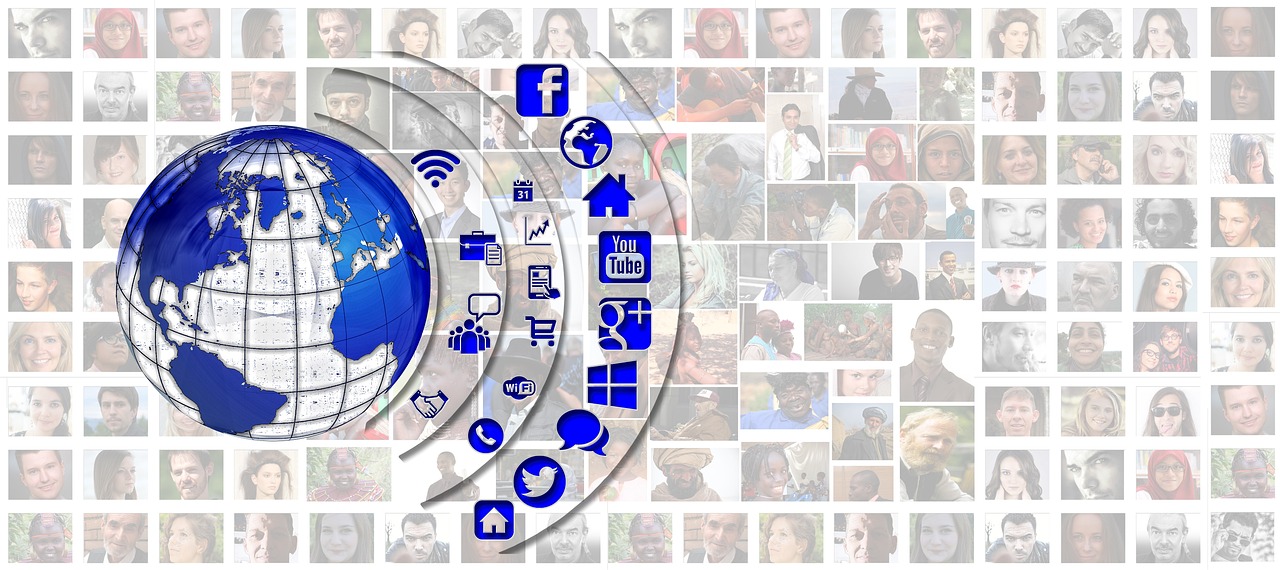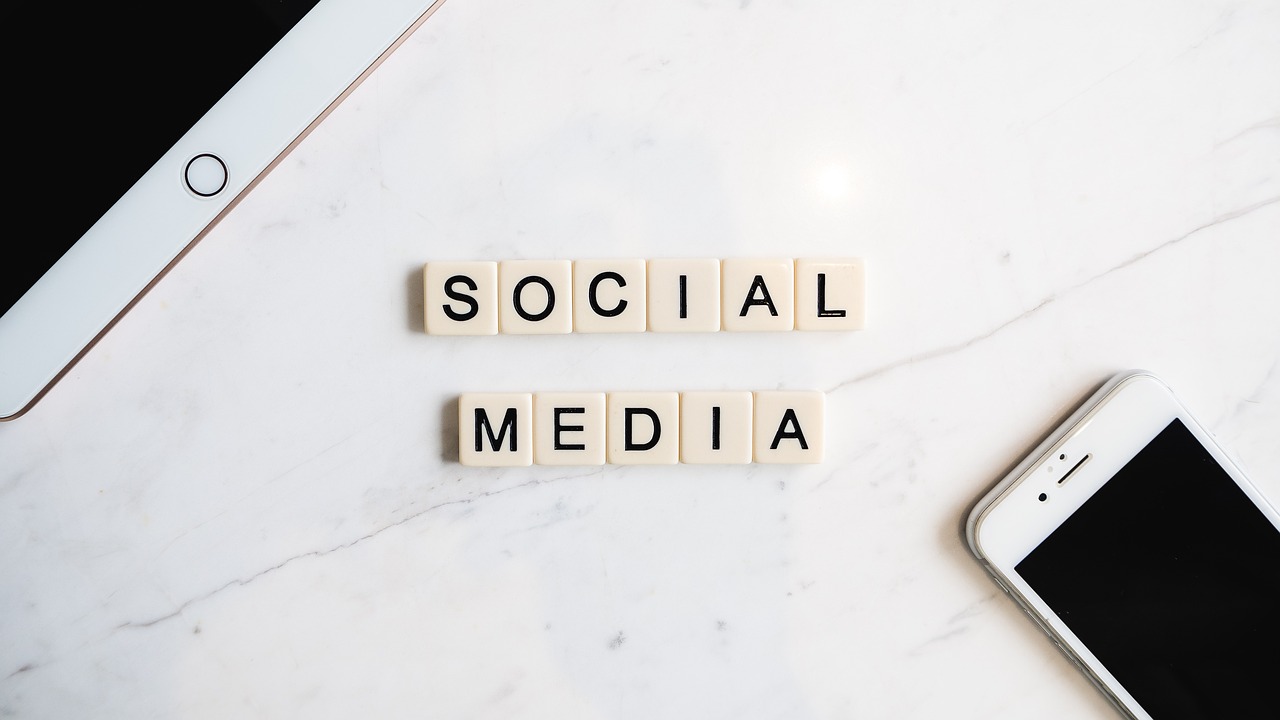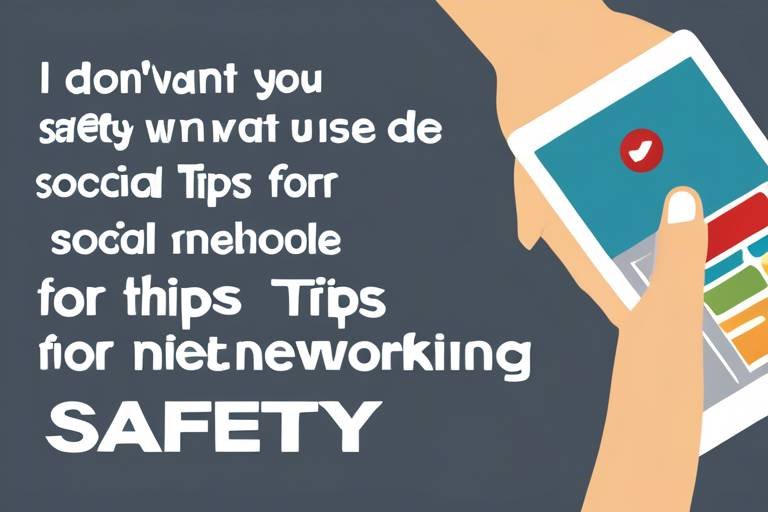Social Media Trolls - Fight or Ignore?
In the vast ocean of social media, where every post can spark joy or ignite controversy, one of the most persistent challenges we face is the presence of social media trolls. These individuals thrive on chaos, often lurking in the shadows, waiting for the perfect moment to unleash their negativity. But what should we do when faced with such disruptive behavior? Should we fight back or simply ignore them? This question is not just a matter of personal preference; it reflects a deeper dilemma that many online users grapple with daily.
On one hand, fighting back against trolls can feel empowering. It’s like standing up to a bully on the playground; you want to assert your voice and defend your space. Responding to a troll can sometimes lead to a satisfying exchange, where your wit and humor shine through, putting the troll in their place. However, this approach can also backfire. Engaging with trolls often fuels their fire, giving them the attention they crave and leading to further harassment. It’s like throwing gasoline on a fire—what starts as a small spark can quickly escalate into a raging inferno.
On the other hand, ignoring trolls can be a wise strategy. By not giving them the attention they seek, you effectively starve their need for engagement. It’s akin to ignoring a child throwing a tantrum; often, they’ll quiet down when they realize they’re not getting the reaction they want. However, ignoring trolls can also lead to feelings of helplessness, especially if their comments are hurtful or damaging. It raises the question: at what point does ignoring become a form of complicity?
Ultimately, the decision to fight or ignore trolls is not black and white. It depends on various factors, including the severity of the trolling, the context of the situation, and your personal emotional resilience. Here are some considerations that might help you navigate this tricky terrain:
- Assess the Situation: Consider the troll's intent. Are they simply seeking attention, or do they have malicious goals?
- Know Your Limits: Understand your emotional boundaries. If engaging with trolls drains you, it might be best to ignore them.
- Seek Support: Sometimes, rallying your community to stand against trolls can be more effective than going solo.
In the end, whether you choose to fight or ignore, it’s essential to remember that trolls often reflect their own insecurities and unhappiness. Their comments are more about them than they are about you. So, as you navigate the tumultuous waters of social media, keep your head high, and choose the approach that feels right for you.
1. What is a social media troll?
A social media troll is someone who intentionally provokes or harasses others online, often to elicit emotional responses or create discord.
2. Should I respond to a troll?
It depends on the situation. If you feel confident and can handle it, a witty or calm response might be effective. However, ignoring them is often a safer choice.
3. How can I protect myself from trolls?
Consider adjusting your privacy settings, blocking or reporting trolls, and surrounding yourself with supportive online communities.
4. What are the legal implications of trolling?
Trolling can sometimes cross legal boundaries, leading to potential charges such as harassment or defamation. It's important to know your rights and seek legal advice if necessary.
5. How can communities combat trolling?
Online communities can foster a positive environment by actively moderating content, supporting victims, and promoting healthy interactions among users.

The Nature of Social Media Trolls
Understanding what defines a troll is essential in navigating the chaotic waters of social media. At its core, trolling is a behavior that thrives on disruption and provocation. Trolls are individuals who intentionally post inflammatory, irrelevant, or offensive comments to elicit reactions from others. But what drives someone to act in such a way? The motivations behind trolling can be as varied as the trolls themselves. Some may seek attention, while others might find joy in the chaos they create. It's like throwing a rock into a calm pond; the ripples can disturb the peace in ways that are often unpredictable.
One of the defining characteristics of a troll is their anonymity. The digital age has granted individuals the power to hide behind screens, allowing them to express their thoughts without facing the real-world consequences of their actions. This anonymity can embolden trolls, giving them a sense of power as they engage in behavior they might never exhibit in person. It’s akin to a masked villain in a movie, hiding their true identity while wreaking havoc on unsuspecting victims. This lack of accountability can make it difficult for victims to understand the motivations behind the trolling, which only adds to the emotional toll it takes.
Moreover, trolls often exhibit a distinct set of behaviors that can further complicate the issue. They may use sarcasm, ridicule, or personal attacks, targeting individuals or groups with the intent to harm or belittle. This behavior can escalate quickly, especially in heated discussions where emotions run high. For instance, during political debates or discussions around sensitive topics, trolls may emerge like vultures, ready to pick apart the arguments of others for their own amusement. The impact of their actions can be devastating, leading to a toxic online environment that discourages open dialogue and genuine interactions.
Interestingly, research has shown that trolls often share certain personality traits, such as high levels of narcissism and sadism. These traits can contribute to their desire to inflict pain or provoke others, making them feel superior or entertained at the expense of their victims. It's a vicious cycle that feeds into their need for validation, often resulting in a toxic feedback loop that perpetuates their behavior.
In summary, the nature of social media trolls is complex and multifaceted. They thrive on anonymity, exhibit distinct behavioral traits, and often possess underlying psychological issues that drive their actions. Understanding these elements is crucial for anyone looking to navigate the treacherous waters of online interactions. By recognizing the characteristics and motivations of trolls, individuals can better equip themselves to handle the challenges posed by these digital disruptors.
- What is a social media troll? A social media troll is someone who posts provocative or inflammatory comments online to elicit reactions from others.
- Why do people troll? People may troll for various reasons, including seeking attention, feeling a sense of power, or simply enjoying the chaos they create.
- How can I deal with trolls? Strategies for dealing with trolls include ignoring them, blocking them, or reporting their behavior to the platform.
- Are trolls always anonymous? While many trolls prefer to remain anonymous, some may use their real identities but still engage in disruptive behavior.

Psychological Impact on Victims
The effects of social media trolling can be profound and far-reaching, often leaving victims grappling with intense emotional and psychological challenges. Imagine waking up every day to a barrage of negative comments, insults, or outright lies about you. It’s like living in a storm where the winds of negativity never cease. Victims often experience a range of emotions, from anxiety and depression to feelings of isolation and helplessness. The constant scrutiny and harsh criticism can chip away at one's self-esteem, leading to a distorted self-image that can be hard to recover from.
Many individuals find themselves questioning their worth and their place in the digital world. The anonymity that trolls enjoy often emboldens them, making it easier for them to unleash their venom without facing real-life consequences. This dynamic creates a vicious cycle where victims feel trapped, unable to escape the relentless onslaught of negativity. In fact, studies have shown that victims of trolling are more likely to experience long-term psychological issues, including post-traumatic stress disorder (PTSD) and social anxiety.
Moreover, the emotional toll can extend beyond the individual. Friends and family members may also feel the impact, as they witness their loved ones struggle with the fallout from online harassment. It’s not just about the individual; it’s about the community that surrounds them. Victims may withdraw from social engagements, leading to a ripple effect that can diminish the quality of their relationships and social support systems. This isolation can exacerbate feelings of loneliness, making it even harder for victims to seek help.
To illustrate the psychological impact, consider the following table that summarizes common emotional responses to trolling:
| Emotional Response | Description |
|---|---|
| Anxiety | Feeling of constant worry and fear about online interactions. |
| Depression | Pervasive sadness and loss of interest in activities once enjoyed. |
| Isolation | Withdrawal from social activities and relationships. |
| Anger | Frustration and rage towards the trolls and the situation. |
| Shame | Feeling embarrassed or humiliated by the trolling experience. |
Understanding these emotional responses is crucial for both victims and those who wish to support them. It’s important to recognize that the pain inflicted by trolls is not just a fleeting annoyance; it can lead to serious mental health issues that require attention and care. Victims should be encouraged to seek professional help, whether through therapy, support groups, or online communities that focus on healing and resilience. The road to recovery can be long, but it’s essential to remind victims that they are not alone in this battle.
Additionally, fostering a culture of empathy and support within online communities can help mitigate the impact of trolling. By standing together, individuals can create a sense of solidarity that empowers victims and discourages trolls from continuing their harmful behavior. After all, it’s easier to face the storm when you have a supportive community by your side.
- What should I do if I am being trolled online? It's important to document the behavior, report it to the platform, and seek support from friends or professionals.
- Can trolling lead to long-term psychological issues? Yes, many victims experience lasting effects such as anxiety, depression, and social isolation.
- How can I support someone who is a victim of trolling? Listen to them, validate their feelings, and encourage them to seek professional help if needed.

Cyberbullying vs. Trolling
When we dive into the murky waters of online behavior, two terms often bubble to the surface: cyberbullying and trolling. While they may seem similar at first glance, they represent distinct forms of online harassment that affect individuals in different ways. Understanding these differences is crucial for anyone navigating the digital landscape, whether you're a casual user or a seasoned social media veteran.
Cyberbullying is typically characterized by its repetitiveness and targeted nature. It involves a person or group repeatedly attacking an individual, often with the intent to cause significant emotional distress. The bully usually has a clear objective: to dominate or intimidate the victim. This form of harassment can manifest through various channels, including social media, text messages, and even emails. The impact of cyberbullying can be devastating, leading to feelings of anxiety, depression, and sometimes even suicidal thoughts. Victims often feel trapped, as the harassment can follow them everywhere, blurring the lines between their online and offline lives.
On the other hand, trolling is often more about the reaction than the victim. Trolls thrive on chaos and disruption, seeking to provoke emotional responses from their targets. They may post inflammatory comments or share outrageous opinions, not necessarily aimed at a specific individual but rather at stirring the pot within a community. While trolling can still be harmful, it often lacks the personal vendetta that characterizes cyberbullying. Instead, trolls may view their actions as a game, deriving pleasure from the outrage they incite.
| Aspect | Cyberbullying | Trolling |
|---|---|---|
| Target | Specific individual | General audience or community |
| Intent | To harm or intimidate | To provoke reactions |
| Frequency | Repetitive attacks | Often sporadic or random |
| Emotional Impact | Severe distress | Varied, often less severe |
It's essential to recognize these differences, as they influence how we respond to such behaviors. For instance, addressing cyberbullying often requires a more direct approach, possibly involving authorities or support systems. In contrast, dealing with trolls might involve ignoring them or employing humor to defuse the situation. This distinction is crucial for victims and bystanders alike, as it shapes the strategies we might employ to combat these negative behaviors.
As we continue to explore the complexities of online interactions, it's clear that both cyberbullying and trolling pose significant challenges. By understanding their unique characteristics, we can better equip ourselves to handle these situations and foster a safer online environment for everyone.
- What should I do if I am a victim of cyberbullying? Seek support from friends, family, or professionals, and consider reporting the behavior to the platform or authorities.
- How can I effectively deal with trolls? Ignoring them is often the best strategy; however, if you choose to engage, do so with humor or wit to undermine their attempts to provoke.
- Are there legal ramifications for cyberbullying? Yes, many jurisdictions have laws against cyberbullying, and victims can often seek legal recourse.

Legal Implications of Trolling
When it comes to the world of social media, the term trolling often conjures images of harmless pranks or witty banter. However, the reality is far more complex and, at times, dangerous. Trolling can cross legal boundaries, leading to serious ramifications for both the perpetrator and the victim. Understanding these legal implications is crucial for anyone navigating the online landscape.
At its core, trolling can manifest in various forms, including harassment, threats, and defamation. Each of these behaviors can violate laws that protect individuals from online abuse. For instance, if a troll engages in persistent harassment, they may be subject to anti-harassment laws that exist in many jurisdictions. These laws are designed to protect victims from unwanted attention and intimidation, allowing them to seek legal recourse.
Moreover, the rise of cyberbullying has prompted lawmakers to take action. Many countries have introduced legislation specifically targeting online harassment, which can include trolling. In the United States, for example, some states have enacted cyberbullying laws that encompass various forms of online abuse, including trolling. Victims of such behavior can report incidents to law enforcement, potentially leading to criminal charges against the trolls.
It's also important to note that the legal implications of trolling can vary significantly based on the context and severity of the actions. For example, a troll who makes threatening remarks may face harsher penalties than one who engages in light-hearted teasing. Additionally, the anonymity that the internet provides can complicate legal proceedings, as it can be challenging to identify and hold accountable those who hide behind pseudonyms.
In many cases, victims of trolling may feel powerless, but there are legal protections in place. Victims can pursue civil actions against trolls for damages, especially if the trolling has resulted in emotional distress or financial loss. This can include filing for defamation if false statements have been made that harm the victim's reputation. The legal landscape is evolving, and courts are increasingly recognizing the impact of online behavior on individuals' lives.
To illustrate the legal landscape further, consider the following table that outlines some key legal concepts related to trolling:
| Legal Concept | Description |
|---|---|
| Harassment | Unwanted and repeated communication that causes distress to the victim. |
| Defamation | False statements made about an individual that damage their reputation. |
| Cyberbullying | Bullying that takes place over digital devices like computers and smartphones. |
| Anonymity and Accountability | The challenge of identifying trolls who operate under fake identities. |
In conclusion, while the internet can be a playground for creativity and connection, it also harbors darker corners filled with trolls who exploit its anonymity. Understanding the legal implications of trolling not only empowers victims but also serves as a reminder that online behavior has real-world consequences. As we continue to navigate this digital age, being aware of our rights and the protections available can help foster a safer online environment for everyone.
- What should I do if I am being trolled online? If you are being trolled, document the incidents and report them to the platform. You may also consider seeking legal advice.
- Can trolls be prosecuted? Yes, depending on the severity of their actions, trolls can face criminal charges or civil lawsuits.
- Are there laws against trolling? Many jurisdictions have laws that address harassment, cyberbullying, and defamation, which can apply to trolling behavior.

Strategies for Coping
Dealing with social media trolls can feel like navigating a minefield—one wrong step and you might find yourself in a world of hurt. However, there are effective strategies that can help you cope with the negativity and protect your mental well-being. First and foremost, it’s essential to recognize that you are not alone. Many individuals face trolling, and understanding that this behavior stems from the troll's own issues can provide some comfort. After all, trolls often thrive on attention, and by learning how to manage your response, you can diminish their power over you.
One of the most effective strategies is to curate your online experience. This means taking control of your social media feeds by unfollowing or blocking accounts that bring negativity into your life. It’s like cleaning out your closet—if something doesn’t fit or make you feel good, it’s time to let it go. Additionally, consider adjusting your privacy settings to limit who can see your posts and interact with you. This can create a safer online environment and reduce the likelihood of encountering trolls.
Another powerful tool in your coping arsenal is the support of friends and community. Sharing your experiences with trusted friends or family can help you process your feelings and gain perspective. You might also find solace in online support groups where individuals share similar experiences. Remember, there’s strength in numbers! Engaging with a community that understands what you’re going through can be incredibly validating.
When faced with trolling, it’s crucial to practice self-care. This could mean taking a break from social media altogether—sometimes the best way to deal with negativity is to step away from it. Engage in activities that bring you joy and relaxation, whether that’s reading, exercising, or spending time with loved ones. By focusing on positive experiences, you can counteract the negative emotions that trolls may evoke.
Moreover, consider developing a thick skin—not an easy task, but one that can be incredibly liberating. This doesn’t mean you should ignore your feelings; rather, it’s about understanding that the troll's words are a reflection of their own insecurities and not a measure of your worth. You might find it helpful to remind yourself of your strengths and accomplishments regularly. Keeping a journal of your achievements can serve as a powerful reminder during tough times.
Lastly, if the trolling escalates or becomes particularly harmful, don’t hesitate to seek professional help. Therapists or counselors can provide you with tools to manage anxiety and depression that may arise from online harassment. They can also help you develop coping mechanisms tailored to your situation. Remember, asking for help is a sign of strength, not weakness.
In summary, while dealing with social media trolls can be challenging, implementing these strategies can help you regain control over your online experience. By curating your social media, seeking support, practicing self-care, developing resilience, and knowing when to seek professional help, you can effectively cope with the negativity that trolls bring into your life.
- What should I do if I encounter a troll?
Consider blocking or reporting the troll. Engaging with them often fuels their behavior.
- How can I protect my mental health from trolling?
Focus on self-care, surround yourself with supportive people, and take breaks from social media if needed.
- Are there legal actions I can take against trolls?
Yes, depending on the severity of the trolling, you may have legal recourse. Consult with a legal expert for specific advice.

Community Response to Trolls
The digital landscape is a vibrant tapestry of voices, ideas, and opinions. However, lurking within this rich environment are social media trolls, whose disruptive behavior can tarnish the experience for many. The question arises: how can online communities effectively respond to these trolls? Well, addressing trolling behavior requires a collective effort from both platform administrators and users alike. When communities unite against trolling, they not only protect individual members but also foster a healthier online atmosphere.
First and foremost, it’s essential for communities to establish clear guidelines and policies regarding acceptable behavior. These guidelines should be easily accessible and communicated effectively to all users. When people know what constitutes unacceptable behavior, it becomes easier to identify trolls and take action against them. Additionally, platforms can implement reporting systems that allow users to flag inappropriate content swiftly. This creates a sense of accountability and encourages users to speak up when they encounter trolling.
Furthermore, education plays a crucial role in combating trolling. Many users may not fully understand what trolling is or how to recognize it. Communities can benefit from workshops, webinars, or informative posts that explain the nature of trolling, its impacts, and the best practices for dealing with it. By empowering users with knowledge, they become more resilient and better equipped to handle trolls when they appear.
Another effective strategy is to promote positive interactions within the community. Encouraging supportive and constructive conversations can drown out the negativity brought by trolls. When users feel valued and heard, they are less likely to engage with trolls, thereby reducing their influence. Initiatives such as community challenges, themed discussions, or collaborative projects can help foster a sense of belonging and discourage trolling behavior.
Finally, community leaders and influencers have a significant role to play. Their voices carry weight, and when they openly denounce trolling behavior, it sets a precedent for others to follow. By modeling positive behavior and calling out trolls, they can inspire users to take a stand against negativity. Additionally, creating a culture of kindness and respect can significantly diminish the power of trolls, making them feel isolated and less impactful.
In summary, the response of online communities to trolls is multifaceted, involving clear guidelines, education, positive engagement, and strong leadership. By coming together and taking a stand, communities can create a safer, more welcoming environment for everyone, effectively diminishing the influence of trolls and promoting healthier online interactions.
- What is a social media troll? A troll is someone who deliberately stirs up trouble online by posting inflammatory comments or engaging in disruptive behavior to provoke others.
- How can I report a troll? Most social media platforms have reporting features that allow users to flag inappropriate content or behavior. Look for options in the post or profile of the user.
- Is ignoring a troll an effective strategy? Ignoring trolls can sometimes be effective, as it denies them the attention they seek. However, in some cases, confronting them or reporting their behavior may be necessary.
- What are the psychological effects of trolling on victims? Victims of trolling can experience a range of negative emotions, including anxiety, depression, and feelings of isolation, which can have lasting impacts on their mental health.
- Can communities really make a difference in reducing trolling? Yes! When communities come together to establish norms, educate users, and promote positive interactions, they can significantly reduce the prevalence and impact of trolling.

To Fight or Ignore: A Dilemma
The question of whether to confront social media trolls or simply ignore them is one that many users grapple with. It’s a bit like deciding whether to poke a bear or tiptoe away quietly. On one hand, engaging with trolls can feel like a satisfying way to reclaim your space and assert your voice. On the other, it can lead to a cycle of negativity that consumes your time and energy. So, what’s the best approach? Let’s break it down.
When you choose to fight back against trolls, you might feel empowered. It’s like standing up to a bully on the playground; it can be exhilarating to take a stand. However, it’s crucial to consider the potential fallout. Engaging with trolls often leads to more trolling, as they thrive on the attention and chaos they create. This can spiral into a toxic back-and-forth that not only affects you but also the community around you. The emotional toll can be hefty, leaving you feeling drained and anxious.
On the flip side, opting to ignore trolls can sometimes be the wisest choice. By not giving them the satisfaction of a reaction, you effectively starve them of the attention they seek. It’s akin to ignoring a child throwing a tantrum; the less you engage, the quicker they may tire out. However, ignoring trolls is not always easy. The hurtful words can linger in your mind, and the urge to respond can be overwhelming. It’s a balancing act of protecting your mental health while also standing up for what’s right.
To make this decision easier, it can be helpful to weigh the pros and cons. Here’s a quick table summarizing the potential outcomes of each approach:
| Approach | Pros | Cons |
|---|---|---|
| Fight |
|
|
| Ignore |
|
|
Ultimately, the decision to fight or ignore trolls is deeply personal and can vary based on the context of the situation. Some individuals may find strength in confrontation, while others may prioritize their peace of mind by choosing to step back. The key is to remain aware of your emotional state and the potential consequences of your actions. Remember, the online world is vast, and your mental well-being should always take precedence over the fleeting satisfaction of engaging with negativity.
As you navigate this dilemma, consider seeking support from friends or online communities. Sometimes, sharing your experiences can provide clarity and strength. After all, you’re not alone in this digital jungle, and there are many who understand the complexities of dealing with trolls.
- What should I do if a troll targets me?
Document the interactions, report the troll to the platform, and consider blocking them. Prioritize your mental health.
- Is it worth engaging with trolls?
Generally, engaging can escalate the situation. It’s often better to ignore them or seek support from others.
- How can I support someone being trolled?
Offer them emotional support, encourage them to report the behavior, and remind them that they are not alone.

Case Studies of Successful Responses
When it comes to dealing with social media trolls, learning from real-life examples can be incredibly enlightening. Many individuals and communities have faced the wrath of trolls and emerged victorious, showcasing strategies that can effectively combat negativity online. One notable case is that of a popular YouTuber, who, after facing relentless trolling, decided to address the issue head-on. Instead of ignoring the comments, they created a video dedicated to discussing the impact of trolling on mental health, which not only highlighted their personal experience but also educated their audience about the broader implications of such behavior. This approach not only empowered the YouTuber but also fostered a supportive community among their followers.
Another powerful example comes from a Twitter user who experienced severe harassment after sharing their views on a controversial topic. Rather than engaging in a back-and-forth argument, they chose to respond with humor. By tweeting a series of light-hearted memes and sarcastic comments, they effectively diffused the situation and garnered support from others who resonated with their approach. This not only turned the tide against the trolls but also showcased the strength of community solidarity in the face of adversity.
Furthermore, online communities have banded together to create safe spaces for those targeted by trolls. For instance, a Facebook group dedicated to mental health awareness has implemented strict guidelines against trolling behavior. Members actively report and block trolls, creating a culture of support and respect. This proactive approach has made the group a refuge for individuals seeking solace from online negativity, demonstrating how collective action can lead to a more positive online environment.
In addition to individual responses, some organizations have taken steps to address trolling on a larger scale. For example, a non-profit focused on internet safety launched a campaign encouraging users to share their stories of overcoming trolling. This initiative not only raised awareness about the issue but also provided a platform for victims to connect and share coping strategies, creating a sense of community and resilience.
These case studies illustrate that while the presence of trolls can be daunting, there are effective strategies to combat their negativity. Whether through humor, education, or community support, individuals and organizations can turn the tide against trolling behavior. The key takeaway is that by sharing experiences and standing together, we can create a more positive and supportive online space.
- What is a social media troll?
A social media troll is someone who deliberately provokes or harasses others online, often for amusement or to incite outrage. - How can I protect myself from trolls?
Consider adjusting your privacy settings, blocking or reporting trolls, and surrounding yourself with supportive online communities. - Is there a difference between trolling and cyberbullying?
Yes, while both involve harassment, cyberbullying is typically more targeted and persistent, often involving a power imbalance. - What should I do if I encounter a troll?
Assess the situation; sometimes ignoring them is best, while other times addressing their behavior directly can be effective.

The Role of Social Media Platforms
Social media platforms hold a significant responsibility in shaping the online landscape, especially when it comes to addressing the issue of trolling. With millions of users actively engaging on these platforms, the potential for harmful interactions, such as trolling, is ever-present. But what exactly can these companies do to mitigate this behavior and foster a healthier online environment? The answer lies in a combination of proactive measures and community engagement.
First and foremost, social media companies need to implement robust content moderation policies. This means not only identifying and removing harmful content but also ensuring that there are clear guidelines on what constitutes trolling. By establishing a transparent framework, users can better understand the boundaries of acceptable behavior. For instance, platforms can utilize advanced algorithms and AI technologies to detect abusive language and patterns of harassment, allowing for quicker responses to incidents of trolling.
Moreover, user reporting systems are crucial. Platforms should empower their users by providing easy-to-use tools for reporting abusive content. When users feel supported and see that their concerns are taken seriously, it can significantly reduce the prevalence of trolling. However, it’s not just about having a reporting feature; it’s also about ensuring that these reports are reviewed promptly and effectively. A well-structured response system can make all the difference.
Another essential aspect is community guidelines and education. Social media platforms can take the initiative to educate their users about the impact of trolling and promote positive interactions. This could involve creating campaigns that highlight the importance of empathy and respect online. By fostering a culture of understanding, platforms can help users recognize the consequences of their actions and encourage them to engage in healthier forms of communication.
Furthermore, social media companies can collaborate with mental health organizations to provide resources for those affected by trolling. This partnership could lead to the development of support networks and hotlines that offer assistance to victims. By taking a holistic approach, platforms can not only address the issue of trolling but also contribute positively to the mental health of their user base.
In addition to these measures, it's vital for social media platforms to engage with their communities actively. This can be done through regular feedback sessions, surveys, and open forums where users can voice their concerns and suggestions. By involving users in the decision-making process, platforms can create a more inclusive environment that resonates with their audience.
In summary, the role of social media platforms in combating trolling is multifaceted. By implementing effective moderation policies, enhancing user reporting systems, promoting educational initiatives, collaborating with mental health organizations, and engaging with their communities, these platforms can significantly reduce the prevalence of trolling and foster a more positive online atmosphere. The responsibility lies not just with the users but also heavily on the shoulders of the platforms themselves, as they have the power to shape the digital world we all inhabit.
- What is the difference between trolling and cyberbullying?
Trolling typically involves provocative or disruptive behavior intended to elicit reactions, while cyberbullying is a more targeted form of harassment aimed at harming a specific individual. - How can I report a troll on social media?
Most platforms have a reporting feature that allows users to flag abusive content. Look for options like "Report" or "Block" on the user's profile or the specific post. - Are there legal consequences for trolling?
Yes, trolling can cross legal boundaries, especially if it involves threats, harassment, or defamation. Victims may have legal recourse depending on the severity of the behavior. - What should I do if I’m being trolled?
Consider documenting the incidents, reporting them to the platform, and seeking support from friends, family, or mental health professionals.
Frequently Asked Questions
- What exactly is a social media troll?
A social media troll is someone who intentionally stirs up trouble online by posting inflammatory, irrelevant, or off-topic comments. Their main goal is to provoke reactions, disrupt conversations, and create chaos within online communities.
- How can trolling affect individuals psychologically?
Trolling can lead to serious psychological effects, including anxiety, depression, and feelings of isolation. Victims may find themselves constantly worrying about negative comments, which can impact their self-esteem and overall mental health.
- What is the difference between cyberbullying and trolling?
While both involve harmful online behavior, cyberbullying typically targets a specific individual with the intent to harm, whereas trolling often aims to provoke reactions from a broader audience, regardless of who gets hurt in the process.
- Are there legal consequences for trolling?
Yes, trolling can have legal implications, especially when it crosses the line into harassment, threats, or defamation. Victims may have legal protections available under various laws, depending on the severity of the trolling.
- What strategies can I use to cope with trolls?
Effective coping strategies include ignoring the troll, blocking or reporting them, and focusing on positive interactions within your online community. It's also helpful to talk to someone about your experiences to gain support and perspective.
- How can online communities respond to trolling?
Online communities can create safer environments by implementing strict moderation policies, encouraging positive interactions, and providing resources for victims. Collective action can help deter trolling behavior and promote a healthier online atmosphere.
- Should I fight back against trolls or ignore them?
This is a common dilemma. Fighting back may feel satisfying in the moment, but it can also escalate the situation. Ignoring trolls can deprive them of the attention they seek, but it may feel frustrating. Weigh the pros and cons based on your situation.
- Can you give examples of successful responses to trolls?
Absolutely! There are many instances where individuals or communities have effectively dealt with trolls by uniting against them, using humor to deflect negativity, or simply reporting the behavior to the platform. These strategies can serve as powerful deterrents.
- What role do social media platforms play in combating trolling?
Social media platforms have a responsibility to create safe spaces. They can implement better reporting systems, enforce community guidelines, and develop algorithms that detect and minimize trolling behavior to promote healthier interactions among users.



















